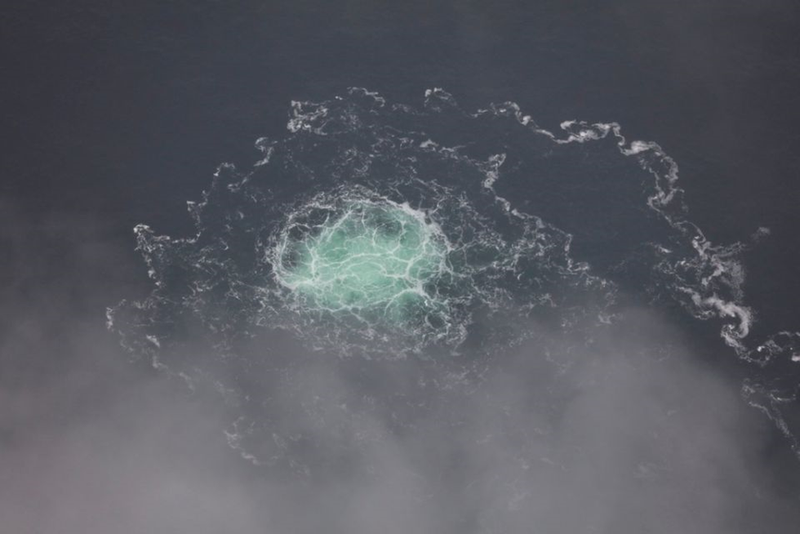Energy, the new European dilemma: The MAGA problems and the Russian... Whispers

The decision is neither easy nor merely technical; it is profoundly political and carries strategic risks. Following the 2022 rupture with Russia due to its invasion of Ukraine, the EU gradually phased out Russian energy imports. In response, Europe pivoted decisively toward the United States, investing in liquefied natural gas (LNG) and the green transition. However, today's geopolitical landscape appears increasingly volatile.
Russian Gas: Still in Europe's Equation?
Energy analyst and former president of the Hellenic Hydrocarbon Management Company (HHRM), Yannis Bassias, speaking to CNN Greece, clarifies: "Europe continues to receive significant volumes of natural gas from Russia. In 2024, it imported even more than in 2023—about 45 billion cubic meters, split between LNG and pipeline gas. While pipeline flows via Ukraine have ceased, the US increased its exports, sending 57 billion cubic meters instead." He further explains: "It’s not that Europe stopped receiving Russian gas. What mattered to those hesitant to admit it—and who are now beginning to say so—is that they want even more. Otherwise, American LNG comes at an exorbitant cost, given the 6,000 nautical miles required for transportation from Texas or Louisiana to Rotterdam and Belgium."
The "America First" Doctrine and Energy Security Concerns
Trump’s "America First" doctrine also impacts energy exports. There are clear signs that U.S. LNG supplies to Europe may be restricted—either due to government intervention or commercial redirection of shipments toward Asia. Bassias warns: "The U.S. cannot provide much more natural gas to Europe or the global market. It lacks sufficient liquefaction facilities to process and export larger quantities."
Marie Samuelsen, energy analyst at the European think tank CEPS, adds: "President Trump has previously demonstrated that he views exports as a bargaining tool. This means LNG is no longer guaranteed—politically or in terms of volume." Bassias echoes this sentiment: "Europe may have to wait until after 2027, when new liquefaction plants in the U.S. come online, increasing export capacity." "This is the big play—discussed not only by analysts but by both Russians and Americans, likely behind closed doors. The U.S. itself wants to avoid a precarious situation."
Whispers of a Russian Return
Despite ongoing EU sanctions against Moscow, the prospect of reintroducing Russian gas remains quietly present in political discussions. Some Central and Eastern European nations, such as Hungary, have openly favored cost-effective energy solutions—even if that involves Russian gas via intermediaries or alternative routes.
Bassias notes: "In Germany and elsewhere, leaders hesitated to advocate for Russian gas, fearing accusations of being ‘pro-Russian.’ However, after Trump’s emergence, they noticed the U.S. President was engaging with his Russian counterpart. This gave them the confidence to start publicly suggesting that, eventually, Europe might need to resume Russian gas imports." Meanwhile, analysts highlight Moscow’s aim to break its "energy isolation" by offering appealing prices and contracts—potentially driving divisions within the EU.
Nord Stream: A Symbol of Dependency Returns to the Fore
Against the backdrop of uncertainty in U.S.-EU relations, another sensitive discussion has resurfaced: the possibility of restarting operational sections of the Nord Stream 1 and 2 pipelines. Although explosions in the Baltic Sea in 2022 severely disrupted gas flows, parts of the infrastructure remain intact. Reports from German media suggest that industrial and political circles do not entirely rule out reopening as a "last resort" should the energy crisis worsen. Bassias emphasizes: "A month before Trump's inauguration, one of his close associates—who had financially backed his campaign—requested U.S. government approval to negotiate the revival of Nord Stream." "The first to support this idea were the Danes. This region is deeply interested, given its energy needs." Friedrich Kunkel, an energy analyst at DIW Berlin, cautions: "Nord Stream represents a failed dependency strategy. Returning to it wouldn’t be an energy solution, but a geopolitical concession."
Moscow, however, remains open to the possibility of repairs or alternative gas routes via Turkey or new pipelines. Yet, Brussels remains wary—any revival of Nord Stream would challenge the EU’s unified strategy of reducing reliance on Russian energy.
CNN Greece - article by Orestis Panteloglou - April 21, 2025